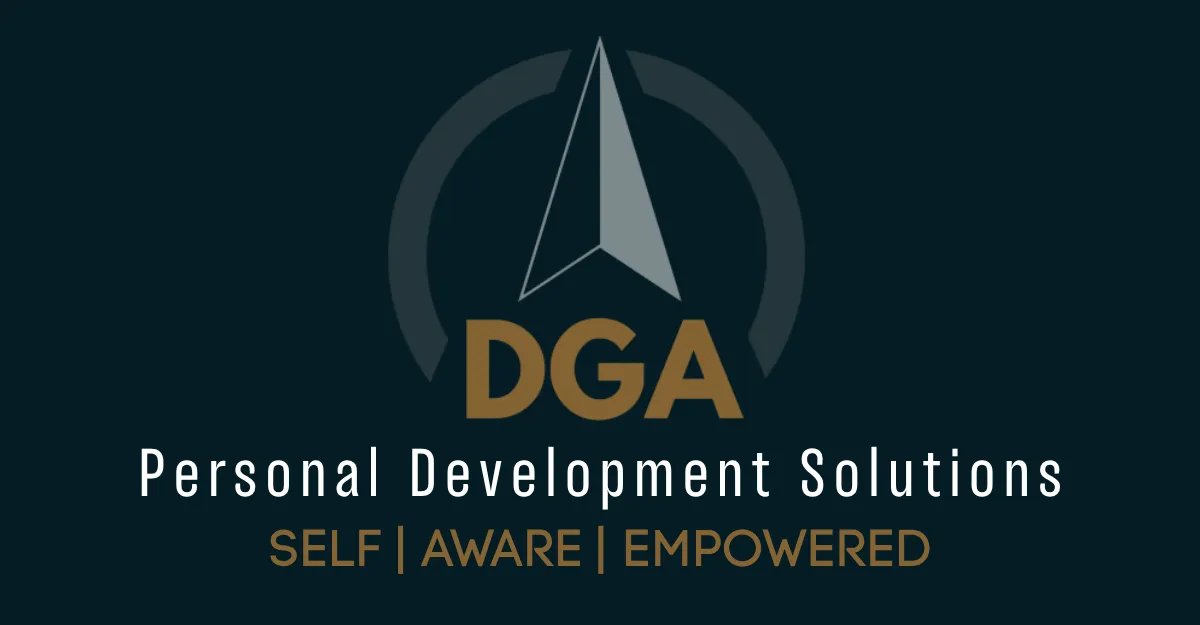The Next Move

The Confidence Trap - Why New Realtors Feel Overwhelmed
And How to Find Your Real Strength
Ever have that knot in your stomach before you walk into an open house? That quiet, nagging thought of, "Who am I to be giving advice on the biggest purchase of someone's life?"
If you're a new realtor or just starting in sales, that feeling of overwhelm—or even feeling like a bit of a fraud—is incredibly common.
So, how do you build real confidence as a new salesperson?
Here’s the simple, direct answer: True, lasting confidence is not faked; it's uncovered. It doesn't come from a script or a seminar. It comes from identifying, trusting, and building your entire business around your own innate strengths.
For the past 40+ years in "The Business", from the volatile interest rates of the 80's, the boom of the 90's I've seen countless talented people burn out or nearly burn out because they were trying to wear someone else's "sales personality." They didn't realize that their innate strengths were really the what they should be leveraging. It’s like being forced to wear an ill-fitting suit—it’s awkward, it’s restrictive, and everyone can tell you're uncomfortable.
My goal is to help you find the clothes that already fit you perfectly.
Why "Fake It 'Til You Make It" Is Bad Advice
You’ve heard the advice: "Fake it 'til you make it." Act confident, and eventually, you'll become it.
I'm going to be straight with you: That advice is a trap.
Trying to project an image of someone you're not is exhausting. You're constantly performing, worried you'll say the wrong thing or that someone will see the "real" you.
Here’s the truth: Clients can sense inauthenticity a mile away. They don't want a slick robot; they want a real, trustworthy human being to guide them through a stressful process.
When you’re faking it, you’re not building confidence. You’re just building a fragile persona that can crack at any moment. That’s not confidence; that's anxiety.
What Are Your Innate Strengths?
Let's get practical. When I say "innate strengths," I'm not just talking about skills you can learn, like running comps or filling out paperwork.
I’m talking about the core of who you are. It's the "hardware" you were born with.
Your strengths are the things you do naturally, often without even thinking.
Are you an exceptional listener? Do people tend to open up to you?
Are you deeply analytical? Do you love digging into market data, zoning laws, and spreadsheets?
Are you a natural connector or storyteller? Can you see how a house connects to a neighborhood, a school, a community?
Are you calm under pressure? When everyone else is panicking about a negotiation, are you the one who can see the path forward?
These aren't "soft skills." In sales and real estate, these are your primary assets.
Too many new agents think they have to be the outgoing, best friend of everyone stereotypical salesperson. They believe their quiet non controntational analytical nature is a weakness. It's not. It's a powerhouse.
Your strengths are the compass; your skills are the map. You need both, but the compass has to be authentic.
How to Find Your Authentic Sales Strengths
You already have these strengths. My job is just to help you see them. If you're feeling stuck, try this.
Look Back, Not Forward. Forget what you think a salesperson should be. Look at your past. When have you felt "in the zone"? It could be from a past job, a hobby, or even a family situation. What were you doing when you felt most competent and energized?
Stop Judging Your Strengths. Don't dismiss what comes easily to you. We often devalue the things we do well because we assume everyone can do them. They can't. If you're "just a good listener," recognize that in a world full of talkers, a true listener is a rare and valuable guide.
Ask Three People. Email or text three people you trust (who aren't in real estate) and ask them a simple question: "When you see me at my best, what am I doing?" Their answers will almost certainly point directly to your innate strengths.
Confidence isn't the goal. Confidence is the byproduct of competence. And true competence comes from operating within your natural strengths.
Putting Your Strengths into Practice
So, what does this look like in the real world?
Let’s say you’ve identified your strength.
If your strength is Empathy & Listening:
Stop trying to "control the conversation."
Start building your whole process around listening. At an open house, your goal isn't to give a speech. It's to ask one great question—like, "What's the story behind your search?"—and then be the best listener that person has talked to all day. Your confidence comes from your genuine connection.
If your strength is Analysis & Data:
Stop trying to be a smooth-talker.
Start being the most prepared agent in the room. Your confidence comes from knowing your stuff. Lead with the data—not just the MLS, but the historical context of the ALR or how the Mission Bridge fundamentally changed property values here in Abbotsford. When a client asks about pricing, you can calmly say, 'That’s a great question. I pulled the comps for the last 90 days, and here’s the trend I'm seeing based on how this neighborhood has behaved since 1995...'" (This showcases deep, area-specific knowledge).
If your strength is Calm & Process-Oriented:
Stop trying to manufacture fake urgency.
Start being the anchor. Your clients are on an emotional rollercoaster. Your strength is your steady hand. Your confidence comes from your ability to say, "This is a normal part of the process. Here are the three things we're going to do next."
You don't need to change who you are to be successful. You need to leverage who you are.
Your Confidence Is Already There
That feeling of being overwhelmed isn't a sign that you're in the wrong career. It's a sign that you're trying to follow the wrong map.
You don't need more scripts. You don't need to be more "salesy."
You need to get quiet and rediscover the strengths you've had your whole life. When you build your business on that foundation, the confidence just… shows up. It's not loud. It's not arrogant. It's calm, focused, and real.
And it's unstoppable.
As humans, we were designed to flourish. Something we sometimes have a hard time doing because of our circumstances, the wrong other people in our life and just because life can be hard. Our strengths are the tools we need to use to discover how we will best flourish in our world.
That's what I love about what I do. I help you uncover these strengths so you can flourish in the confidence you were designed to have. It’s the same approach I used when helping families realize what is most important during their move. More important than the property itself—sometimes, the best sale is the one that prioritizes the person. (Relationship Over Transaction)
If you're tired of feeling overwhelmed and ready to build a business that feels as good as it is successful, let's talk. I offer a complimentary 30-minute discovery call to help you identify those first few strengths and see a clearer path forward.
Frequently Asked Questions (FAQ) About Building Sales Confidence
Q: What's the difference between a skill and an innate strength? A: A skill is something you learn, like using the MLS, writing a contract, or running a social media ad. An innate strength is part of your core personality, like being empathetic, analytical, or a great storyteller. You use your innate strengths to master your skills.
Q: How long does it take to build confidence in real estate? A: It can take a long time if you're trying to "fake it." But when you shift your focus to leveraging your innate strengths, you can feel a significant change immediately. Confidence builds with each authentic interaction where you realize, "Hey, just being myself... worked."
Q: I'm an introvert. Can I still be a confident salesperson? A: Absolutely. This is one of the biggest myths in sales. Many of the most successful salespeople and realtors I've worked with are introverts. They don't win by being the loudest person in the room. They win by being the best listeners, the most prepared researchers, and the most thoughtful advisors. Your introversion is a strength, not a weakness.
The Realtor's Compass

The Confidence Trap - Why New Realtors Feel Overwhelmed
And How to Find Your Real Strength
Ever have that knot in your stomach before you walk into an open house? That quiet, nagging thought of, "Who am I to be giving advice on the biggest purchase of someone's life?"
If you're a new realtor or just starting in sales, that feeling of overwhelm—or even feeling like a bit of a fraud—is incredibly common.
So, how do you build real confidence as a new salesperson?
Here’s the simple, direct answer: True, lasting confidence is not faked; it's uncovered. It doesn't come from a script or a seminar. It comes from identifying, trusting, and building your entire business around your own innate strengths.
For the past 40+ years in "The Business", from the volatile interest rates of the 80's, the boom of the 90's I've seen countless talented people burn out or nearly burn out because they were trying to wear someone else's "sales personality." They didn't realize that their innate strengths were really the what they should be leveraging. It’s like being forced to wear an ill-fitting suit—it’s awkward, it’s restrictive, and everyone can tell you're uncomfortable.
My goal is to help you find the clothes that already fit you perfectly.
Why "Fake It 'Til You Make It" Is Bad Advice
You’ve heard the advice: "Fake it 'til you make it." Act confident, and eventually, you'll become it.
I'm going to be straight with you: That advice is a trap.
Trying to project an image of someone you're not is exhausting. You're constantly performing, worried you'll say the wrong thing or that someone will see the "real" you.
Here’s the truth: Clients can sense inauthenticity a mile away. They don't want a slick robot; they want a real, trustworthy human being to guide them through a stressful process.
When you’re faking it, you’re not building confidence. You’re just building a fragile persona that can crack at any moment. That’s not confidence; that's anxiety.
What Are Your Innate Strengths?
Let's get practical. When I say "innate strengths," I'm not just talking about skills you can learn, like running comps or filling out paperwork.
I’m talking about the core of who you are. It's the "hardware" you were born with.
Your strengths are the things you do naturally, often without even thinking.
Are you an exceptional listener? Do people tend to open up to you?
Are you deeply analytical? Do you love digging into market data, zoning laws, and spreadsheets?
Are you a natural connector or storyteller? Can you see how a house connects to a neighborhood, a school, a community?
Are you calm under pressure? When everyone else is panicking about a negotiation, are you the one who can see the path forward?
These aren't "soft skills." In sales and real estate, these are your primary assets.
Too many new agents think they have to be the outgoing, best friend of everyone stereotypical salesperson. They believe their quiet non controntational analytical nature is a weakness. It's not. It's a powerhouse.
Your strengths are the compass; your skills are the map. You need both, but the compass has to be authentic.
How to Find Your Authentic Sales Strengths
You already have these strengths. My job is just to help you see them. If you're feeling stuck, try this.
Look Back, Not Forward. Forget what you think a salesperson should be. Look at your past. When have you felt "in the zone"? It could be from a past job, a hobby, or even a family situation. What were you doing when you felt most competent and energized?
Stop Judging Your Strengths. Don't dismiss what comes easily to you. We often devalue the things we do well because we assume everyone can do them. They can't. If you're "just a good listener," recognize that in a world full of talkers, a true listener is a rare and valuable guide.
Ask Three People. Email or text three people you trust (who aren't in real estate) and ask them a simple question: "When you see me at my best, what am I doing?" Their answers will almost certainly point directly to your innate strengths.
Confidence isn't the goal. Confidence is the byproduct of competence. And true competence comes from operating within your natural strengths.
Putting Your Strengths into Practice
So, what does this look like in the real world?
Let’s say you’ve identified your strength.
If your strength is Empathy & Listening:
Stop trying to "control the conversation."
Start building your whole process around listening. At an open house, your goal isn't to give a speech. It's to ask one great question—like, "What's the story behind your search?"—and then be the best listener that person has talked to all day. Your confidence comes from your genuine connection.
If your strength is Analysis & Data:
Stop trying to be a smooth-talker.
Start being the most prepared agent in the room. Your confidence comes from knowing your stuff. Lead with the data—not just the MLS, but the historical context of the ALR or how the Mission Bridge fundamentally changed property values here in Abbotsford. When a client asks about pricing, you can calmly say, 'That’s a great question. I pulled the comps for the last 90 days, and here’s the trend I'm seeing based on how this neighborhood has behaved since 1995...'" (This showcases deep, area-specific knowledge).
If your strength is Calm & Process-Oriented:
Stop trying to manufacture fake urgency.
Start being the anchor. Your clients are on an emotional rollercoaster. Your strength is your steady hand. Your confidence comes from your ability to say, "This is a normal part of the process. Here are the three things we're going to do next."
You don't need to change who you are to be successful. You need to leverage who you are.
Your Confidence Is Already There
That feeling of being overwhelmed isn't a sign that you're in the wrong career. It's a sign that you're trying to follow the wrong map.
You don't need more scripts. You don't need to be more "salesy."
You need to get quiet and rediscover the strengths you've had your whole life. When you build your business on that foundation, the confidence just… shows up. It's not loud. It's not arrogant. It's calm, focused, and real.
And it's unstoppable.
As humans, we were designed to flourish. Something we sometimes have a hard time doing because of our circumstances, the wrong other people in our life and just because life can be hard. Our strengths are the tools we need to use to discover how we will best flourish in our world.
That's what I love about what I do. I help you uncover these strengths so you can flourish in the confidence you were designed to have. It’s the same approach I used when helping families realize what is most important during their move. More important than the property itself—sometimes, the best sale is the one that prioritizes the person. (Relationship Over Transaction)
If you're tired of feeling overwhelmed and ready to build a business that feels as good as it is successful, let's talk. I offer a complimentary 30-minute discovery call to help you identify those first few strengths and see a clearer path forward.
Frequently Asked Questions (FAQ) About Building Sales Confidence
Q: What's the difference between a skill and an innate strength? A: A skill is something you learn, like using the MLS, writing a contract, or running a social media ad. An innate strength is part of your core personality, like being empathetic, analytical, or a great storyteller. You use your innate strengths to master your skills.
Q: How long does it take to build confidence in real estate? A: It can take a long time if you're trying to "fake it." But when you shift your focus to leveraging your innate strengths, you can feel a significant change immediately. Confidence builds with each authentic interaction where you realize, "Hey, just being myself... worked."
Q: I'm an introvert. Can I still be a confident salesperson? A: Absolutely. This is one of the biggest myths in sales. Many of the most successful salespeople and realtors I've worked with are introverts. They don't win by being the loudest person in the room. They win by being the best listeners, the most prepared researchers, and the most thoughtful advisors. Your introversion is a strength, not a weakness.


